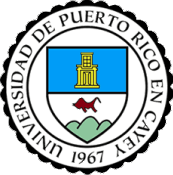Below is a summary of the abstract you submitted. Presenting author(s) is shown in bold.
If any changes need to be made, you can modify the abstract or change the authors.
You can also download a .docx version of this abstract.
If there are any problems, please email Dan at dar78@pitt.edu and he'll take care of them!
This abstract was last modified on May 9, 2016 at 4:22 p.m..

Student engagement in original scientific research is an effective method to provide meaningful educational experiences in introductory biology. Over the past seven years, approximately 230 undergraduate freshman biology majors have participated in the SEA-PHAGES Program at UPRC, a project to isolate and characterize mycobacteriophage genomes, previously shown to present variable and mosaic gene organization. Understanding bacteriophages is important for evolutionary studies, novel gene identification, and development of therapies against antibiotic resistant pathogenic bacteria. We hypothesize finding unique bacteriophages with useful properties.
Tropical soil samples were collected throughout Puerto Rico and high titer phage lysates were prepared following enrichment and plaque purification. Phage morphologies were characterized using electron microscopy. Virion coat proteins were resolved using SDS-PAGE and will be followed by protein identification using mass spectroscopy. Mycobacteriophage genomic DNAs were purified, digested, and visualized using gel electrophoresis. Selected genomic sequences were determined and analyzed using bioinformatics tools.
This year, more than 25 novel virulent and temperate bacteriophages were isolated followed by purification and partial characterization. Genomic sequences were determined and annotated for the mycobacteriophages GuuelaD (Cluster L2; 76,315 bp; 58.9% GC), HortumSL17 (A9; 53,426 bp; 62.6% GC), LastHope (K1; 60,934 bp; 66.9% GC), Paito (G1; 42,311 bp; 66.0% GC), Pomar16 (A2; 52,833 bp; 63.4% GC), Priamo (A6; 51,633 bp; 61.4% GC), and Tomathan (A2; 52,876 bp; 63.4% GC). These mycobacteriophages encode many putative protein-coding genes similar to some previously identified as well as novel proteins with unknown functions. Transfer RNAs (tRNAs) were also identified. Numerous repetitive elements including inverted repeats were identified in some of these mycobacteriophages. Cluster A2 mycobacteriophages Pomar16 and Tomathan show highly similar genome organization to D29 and include an additional region. Additional experiments are currently underway to further characterize these novel mycobacteriophages.
More than 175 mycobacteriophages have been isolated and partially characterized at UPRC and additional bacteriophages for Actinobacteria and other bacterial hosts continue to be found, increasing our understanding of the biology of this important group of viruses. Twenty UPRC mycobacteriophage genomes have been sequenced and seven have been submitted to GenBank so far: Lilac (JN382248.1), Cuco (JN408459.1), Kratio (KM923971.1), Murucutumbu (KM677211.1), Catalina (KU613353.1), Myxus (KU716095.1), and Apizium (KR781349.1). The unique organization of these mycobacteriophages presents an interesting challenge in understanding evolution and genome conservation maintained through distant geographic dispersal. SEA-PHAGES, HHMI, and UPR-Cayey supported this research.
